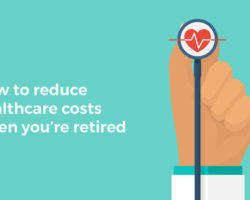Auto insurance fraud has risen dramatically in the United States in the past few years. But insurance companies are also adapting. And their latest weapon in the war against fraud will leave you speechless. It’s something that we use every day: social media.
A lot of companies are already using social media for advertising, marketing or to find new employees, but insurance companies have gone a step further. So, if you’re a bad guy and you want to get some free money from your insurer, you better check your Facebook or Twitter accounts first. They may just foil your evil plans.
Social media lets you shoot yourself in the foot
Thieves usually believe that they’re smarter than their targets. This, together with the fact that many people believe big insurance companies to not really invest too much effort in checking up on claims, encourages a lot of bad guys to do bad deeds. But it also makes them arrogant.
In one case, a man bragged on Facebook that he was committing insurance fraud. Unfortunately for him, his account’s privacy settings were turned off. His insurer found out and he was fined $2,000 and ordered to pay $18,000 in restitution.
With social media, your entire life is out there for everyone to see. And insurance companies are taking advantage of this. They have started to monitor and use them as a valuable source of claims-investigation evident.
If someone claims they were injured in an accident, insurance companies go on Facebook, LinkedIn, Instagram, Twitter, Foursquare, Google Plus and Pinterest, and check to see if they’re dealing with a fraudulent claim. People with injured backs, legs or necks won’t go out to party, drink and dance. And they definitely won’t share post-accident pictures of them doing these things.
People believe that what they post on their social media profiles can’t be used against them in court. They’re wrong. If your profile is “public,” then posting something on it is just like shouting it out in the street. And you don’t even have to post it yourself. A photo or a post published on a friend’s public social media account can have the same effect.
What’s next?
Knowing that your life is out there for everyone to see and that someone is actually looking is a little scary. It’s one thing for insurers to check your Facebook profile if they feel that you’re trying to cheat them, but what if they do it when they’re calculating your premiums? What if a friend makes fun of you and calls you a bad driver? This might not be true, but what if your insurer sees it and makes you pay more? I guess we just have to wait and see. Until then, think twice what you post on your social media account.









